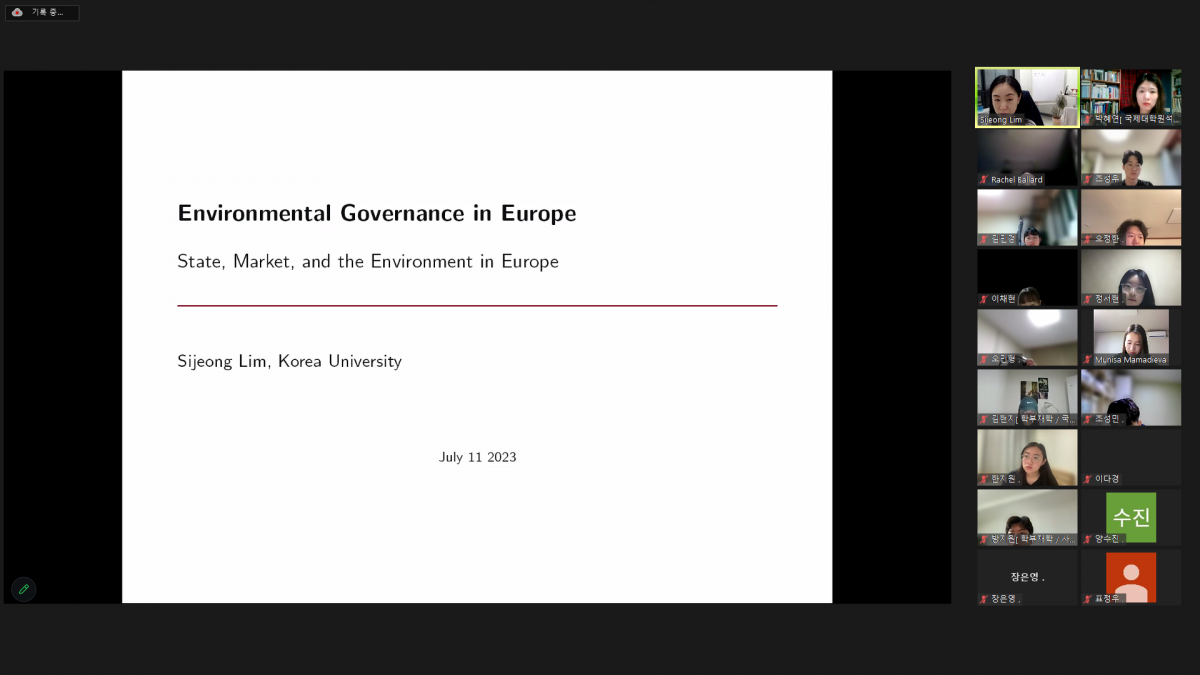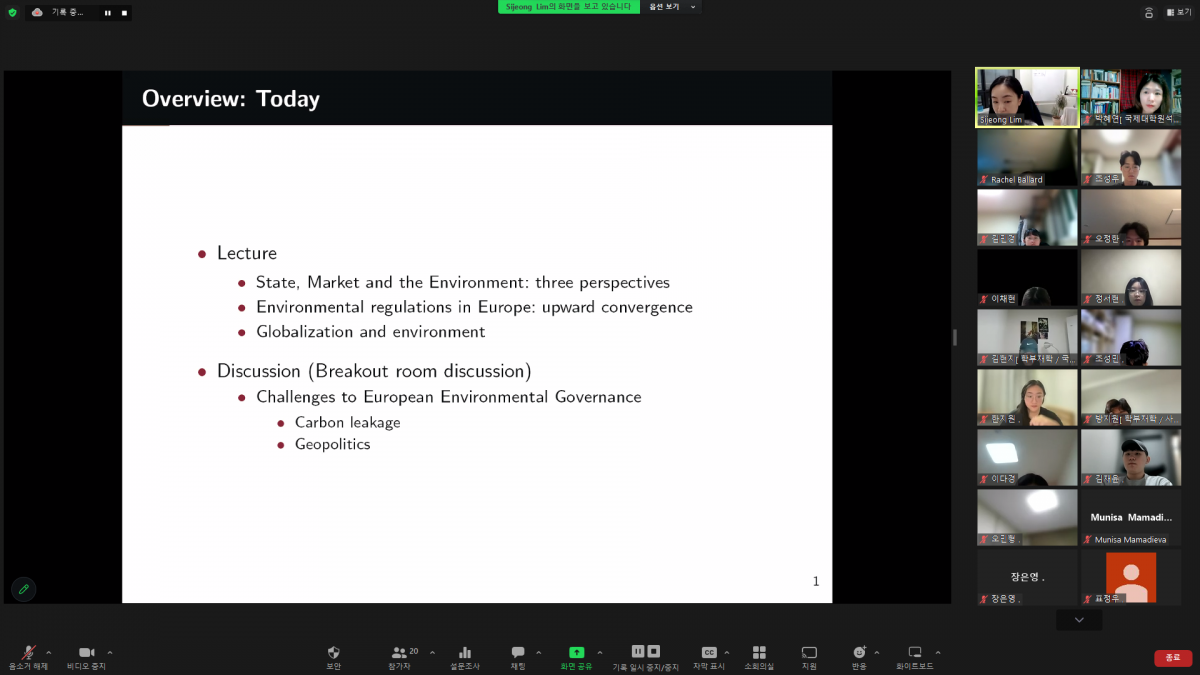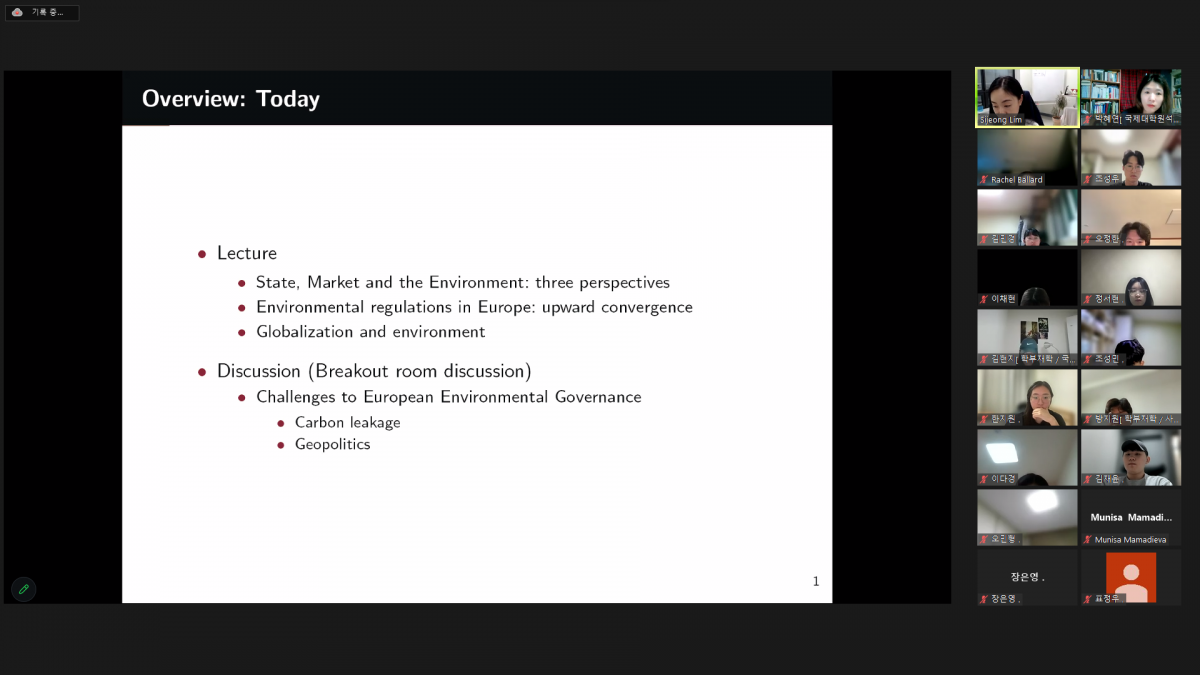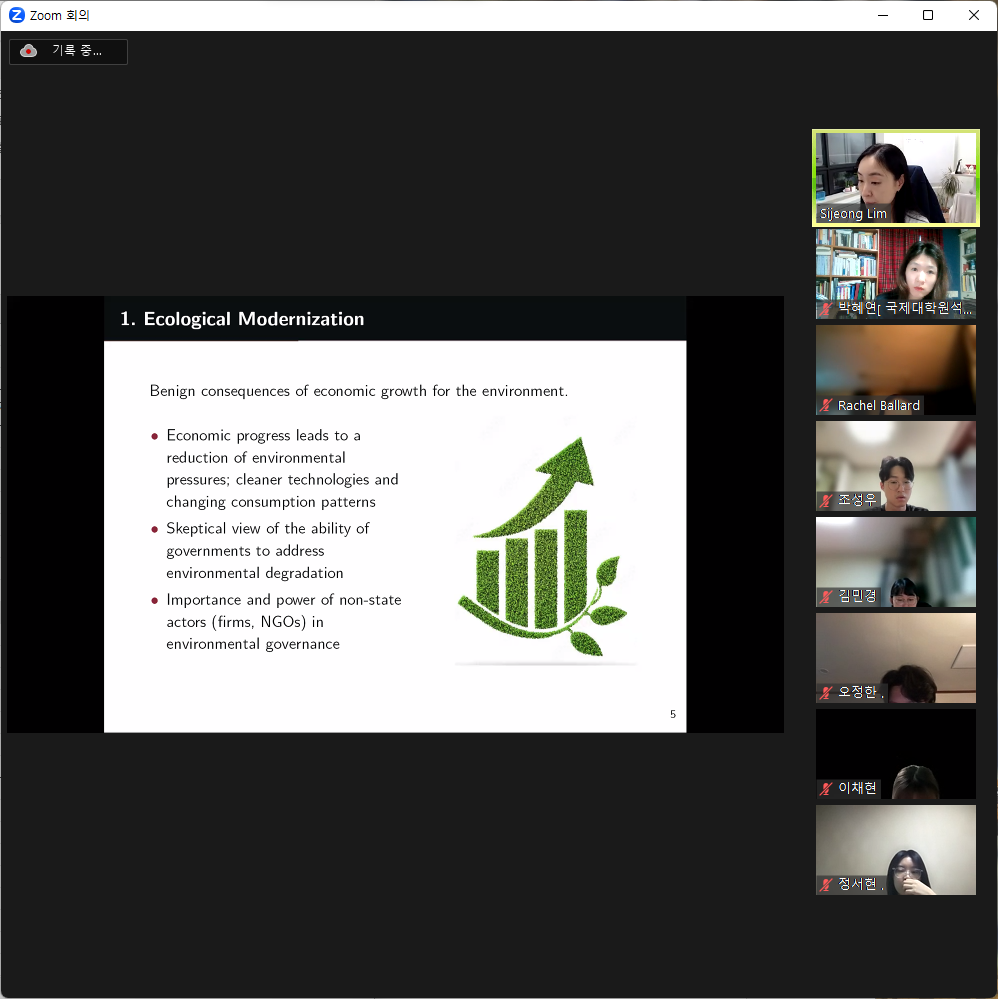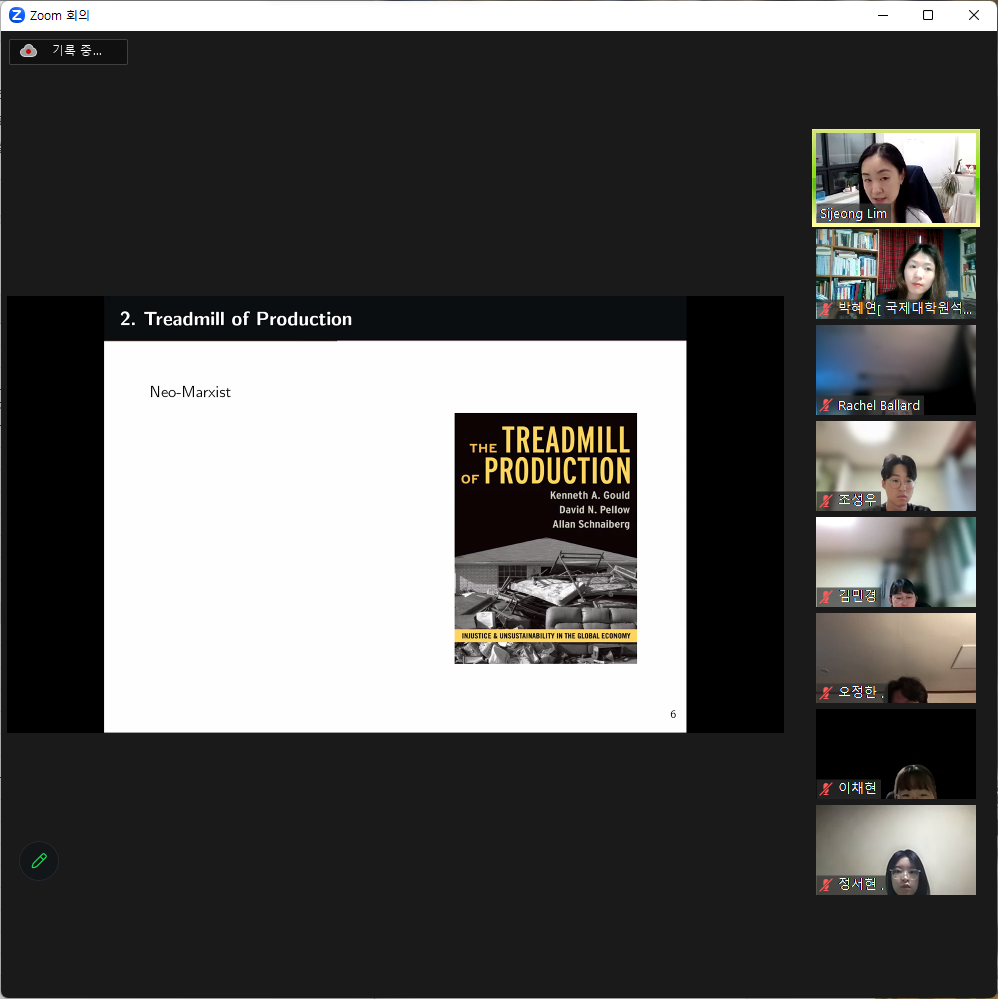Summer School 2023 <Contemporary Europe> Session 11
페이지 정보

본문
Professor Sijeong Lim’s second class was about environment and the state. Environment is now a key feature of the welfare state, as it is closely related to the standard of living. The class focused on theoretical part of environmental states. Three different perspectives on the state and market’s roles on environment were introduced. The first is ecological modernization, where people argue that economic growth would bring the technological progress that would help reduce the drastic consequences of environmental destruction. They doubt state’s capability to affect change in environmental degradation. The next viewpoint is a neo-Marxist view, which is called as the treadmill of production. The neo-Marxists contend that state’s regulation is just legitimizing the demand from the market. The last approach is environmental state as an analogy to the welfare state. They expect government’s comprehensive set of environmental regulations such as conservation, pollution control, or sustainability to take care of the issue.
The phenomenon common in all nations is that their environmental regulations are increasing in its number and degree. There are some explanations to this tendency. First, economic development is sued, as environmental Kuznet’s inverse U-shaped graph shows. On the other hand, some believe that democracy is a key to understand increasing regulations. In simple terms, majority wants clean environment. Different views on what drove the regulations common in nowadays were debated by students in the later session of the class, where students formed small groups to discuss about their views on these theories and the state of South Korea.
첨부파일
-
Session 11_Europe and the Environment.pdf (879.6K)
1회 다운로드 | DATE : 2023-07-19 11:25:51
- 이전글Summer School 2023 <Contemporary Europe> Session 12 23.07.19
- 다음글Summer School 2023 <Contemporary Europe> Session 10 23.07.11
댓글목록
등록된 댓글이 없습니다.









